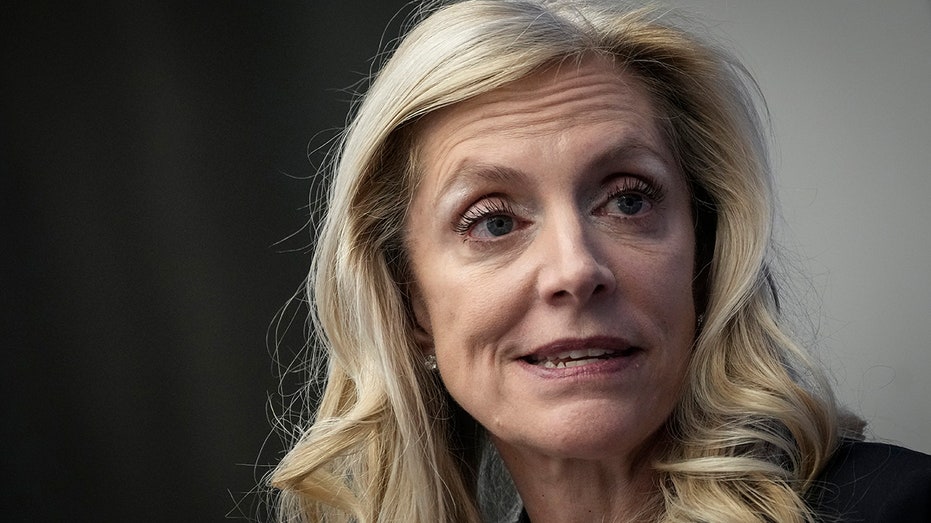Business leaders ‘concerned’ Congress won’t prevent default: WH National Economic Council chair
National Economic Council Director Lael Brainard says she expects Congress to avert default
Sen. Bill Cassidy calls on President Biden to ‘step up’ and address the debt ceiling
Sen. Bill Cassidy, R-La., joined ‘Cavuto: Coast to Coast’ to discuss the looming debt default as President Biden continues to postpone his discussion with Speaker McCarthy.
Lael Brainard, director of the White House National Economic Council, on Sunday said that while she expects Congress will avert default, American business leaders have "concerns" that lawmakers may fail.
Brainard, who recently began serving as the council’s director after previously serving as vice chair of the Federal Reserve, made the remarks during an appearance on CBS’s "Face the Nation."
"When I talk to CEOs, to business leaders around the country, they tell me that things are actually going very well," Brainard said. "But their biggest concern is that Congress might fail to prevent default and that would be catastrophic. It would lead to higher borrowing costs for cars, for mortgages, for small businesses, even for the U.S. government."
Even with these concerns about a potential U.S. default, Brainard said the debt-ceiling talks among lawmakers in Washington are "serious" and "constructive."
DEBT CEILING SHOWDOWN RISKS TRIGGERING ‘SELF-INFLICTED’ RECESSION

Director of the National Economic Council Lael Brainard said Congress has the tools to prevent the U.S. from defaulting on its debt. (Drew Angerer/Getty Images / Getty Images)
"We do pay our bills," the economist said. "Congress has always acted, and they know how to do it, and they have the capacity to do it in a timely manner."
The debt ceiling, which is currently around $31.4 trillion, is the legal limit on the total amount of debt that the federal government can borrow on behalf of the public, including for Social Security and Medicare benefits, military salaries, and tax refunds.
US is on an 'exploding path of debt': Kent Smetters
Penn Wharton Budget Model Faculty Director Kent Smetters estimates the government will run out of money in early June if the debt crisis is not resolved on ‘Cavuto: Coast to Coast.’
The U.S. government bumped up against that limit in January, prompting the Treasury Department to initiate a series of actions that are known as "extraordinary" measures and are intended to stave off a default.
The U.S. could default on its federal debt as soon as June 1 if an agreement is not reached.
BANKING CRISIS THREATENS TO IGNITE CREDIT CRUNCH OF US HOUSEHOLDS: WHAT TO KNOW
Despite concerns over the debt ceiling, Brainard said the current ongoing conversations are budgetary in nature.
GOP lawmakers reveal what constituents think about debt limit fight
Fox News Digital asked several House Republicans what they're hearing from Americans about the debt limit standoff between the House GOP and the White House.
"The conversations that are ongoing right now are really very much focused on the budget, which is the future of the fiscal commitments that the U.S. can make, but in terms of the responsibility to pay our bills, America isn't a deadbeat nation," she said.
GET FOX BUSINESS ON THE GO BY CLICKING HERE
Brainard maintained that the council’s expectation "is that Congress will act to avert default in a timely manner."
FOX Business’ Megan Henney contributed to this report.






















